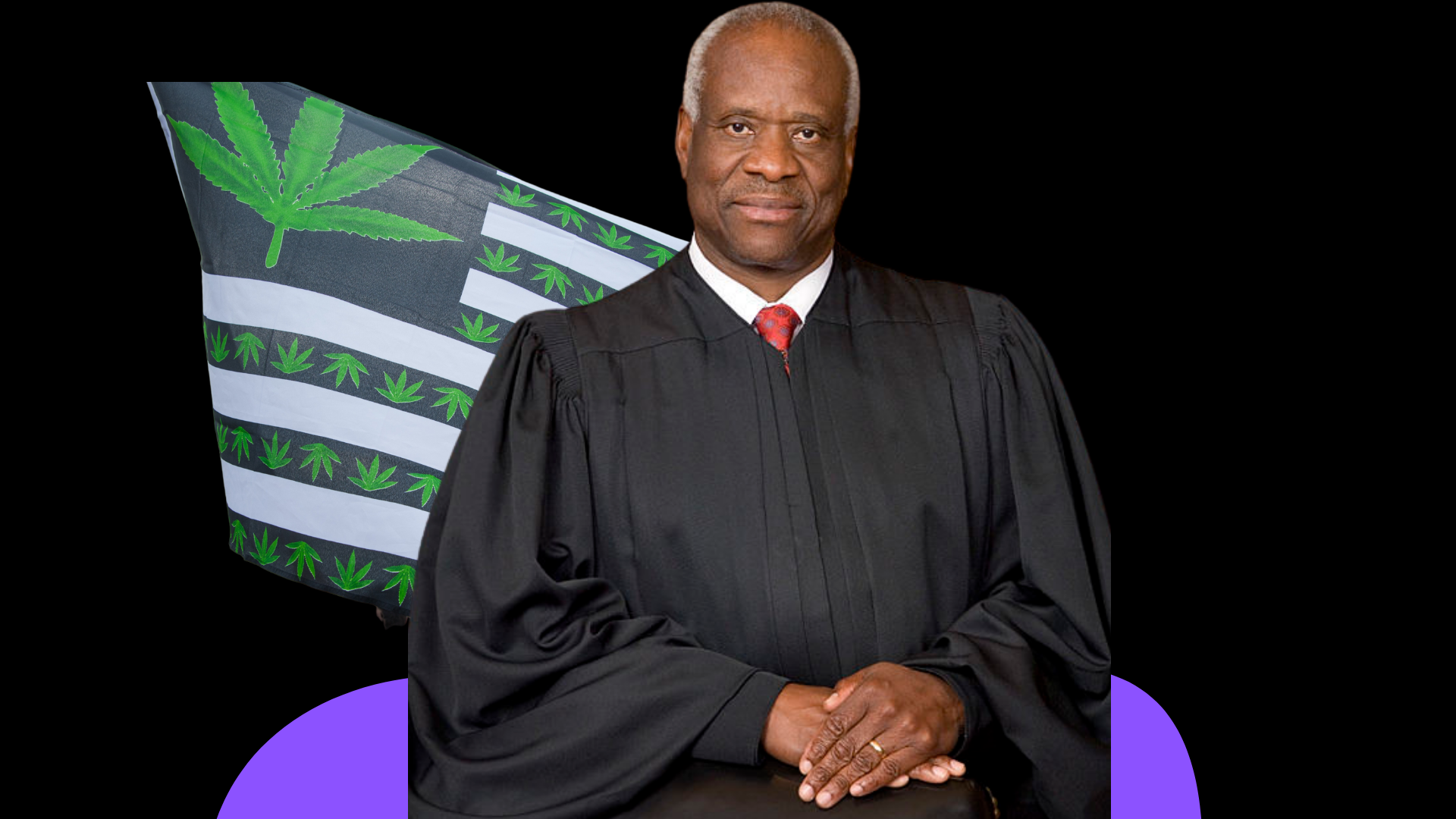Supreme Court Justice Clarence Thomas said this week he believes federal laws that prohibit the cultivation or use of marijuana no longer make sense in the current political climate. He wrote the federal government’s marijuana laws take a “half-in, half-out” posture in the matter, tolerating and restricting local use at the same time.
Justice Thomas wrote, “A prohibition on interstate use or cultivation of marijuana may no longer be necessary or proper to support the federal government’s piecemeal approach.”
This criticism of federal weed laws demonstrates the contradiction in the federal marijuana law. Thomas has served as a supreme court judge since 1991, after a heated debate over his nomination by then President George H.W. Bush.
In 2005, the U.S. Supreme Court upheld the federal government’s right to seize and destroy medical marijuana. The ruling included medicinally and personally grown weed by individuals with serious illnesses.
At that time, the Court cited the still-in-effect Controlled Substances Act, which stated no marijuana use under any circumstances, even for medical purposes. At the time, nine states had laws allowing medical marijuana use.
Thomas was part of that 2005 ruling. Now, he argues rulings that supported the Act may be outdated.
“Federal policies of the past 16 years have greatly undermined its reasoning. The federal government’s current approach is a half-in, half-out regime that simultaneously tolerates and forbids local use of marijuana.”
Almost 40 states have made medical weed legal and 18 states allow recreational use. Still, federal law not only disallows cultivation and possession but those laws prevent legalized marijuana businesses to deduct their business expenses on the federal level.
Justice Thomas’s opinion came to light just as the Supreme Court voted to not hear a Colorado medical marijuana dispensary’s appeal of a previous lower court decision. The dispensary wanted to argue the denial of federal tax breaks that the government offers other businesses was unconstitutional.
Thomas voiced his opinion on this matter as well: “Under this rule, a business that is still in the red after it pays its workers and keeps the lights on might nonetheless owe substantial federal income tax.”
In a move of compromise, the Department of Justice issued instruction for federal prosecutors to not go after marijuana businesses operating legally under state law. In 2015, Congress said the Justice Department could not use federal funds to go after states allowing legalized marijuana use. Meanwhile, the IRS continues to enforce its own governing against dispensers and growers.
Thomas believes the federal government’s stance is awkward and contradictory. It has an “episodic” “willingness to look the other way on marijuana” that lacks coherency.
Thomas’s position is striking as his voice has frequently been more conservative. Upon his presidential nomination, his political leanings were originally a hot topic among Democratsand the general public.
With a tenure closing in on three decades, Thomas is currently the Supreme Court’s longest-serving member.
Thomas is only the second African-American to sit on the federal bench. The first was Thurgood Marshall.










